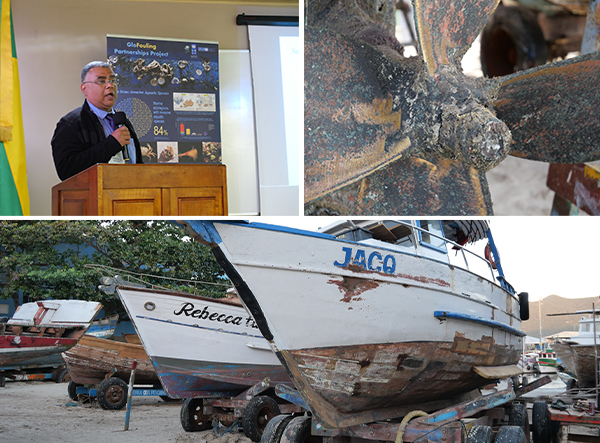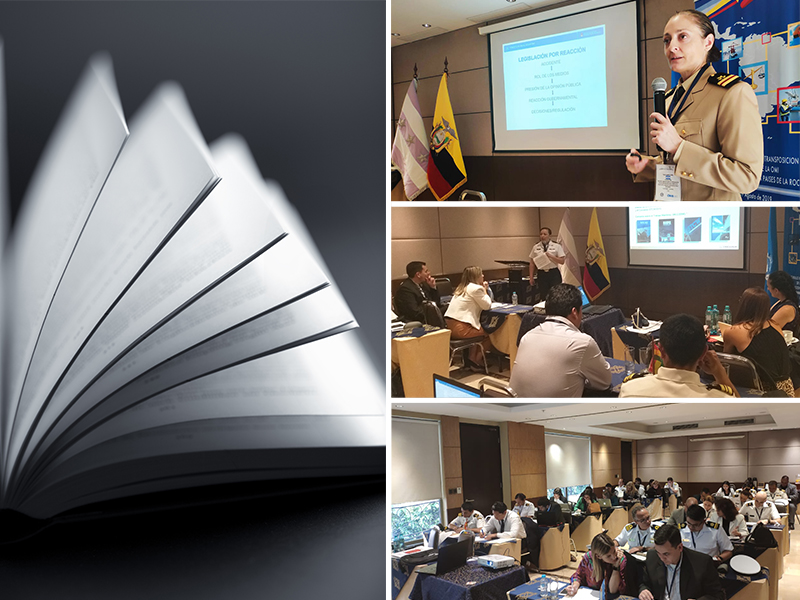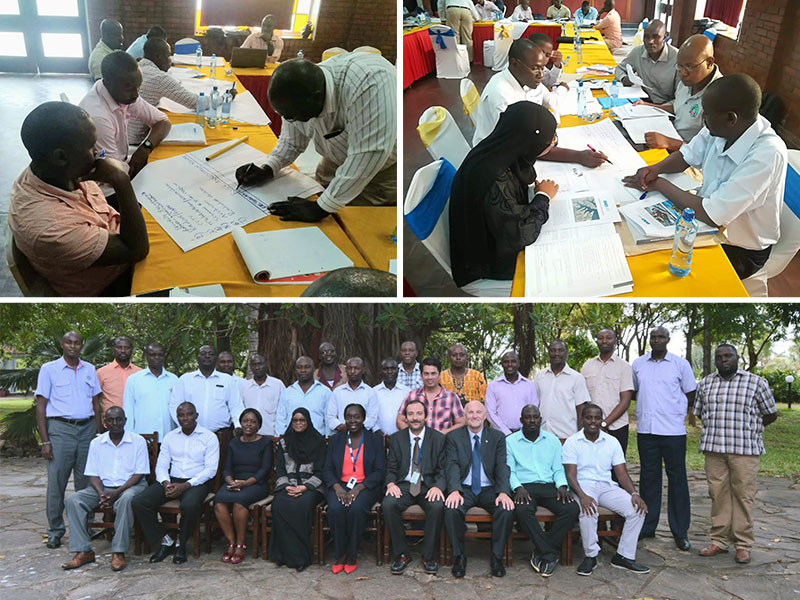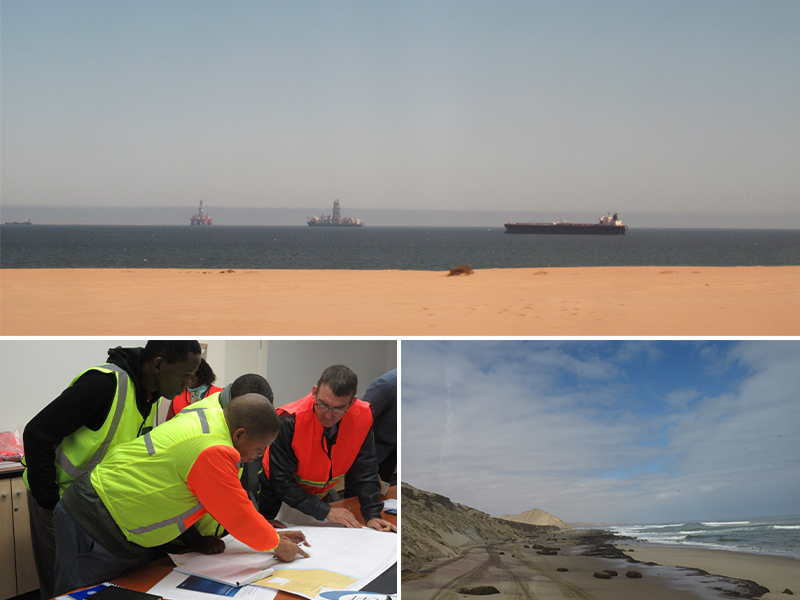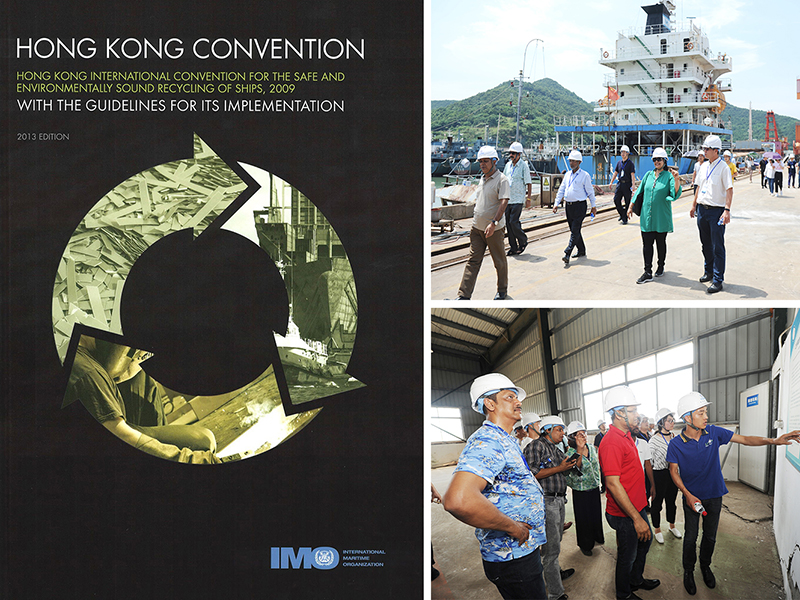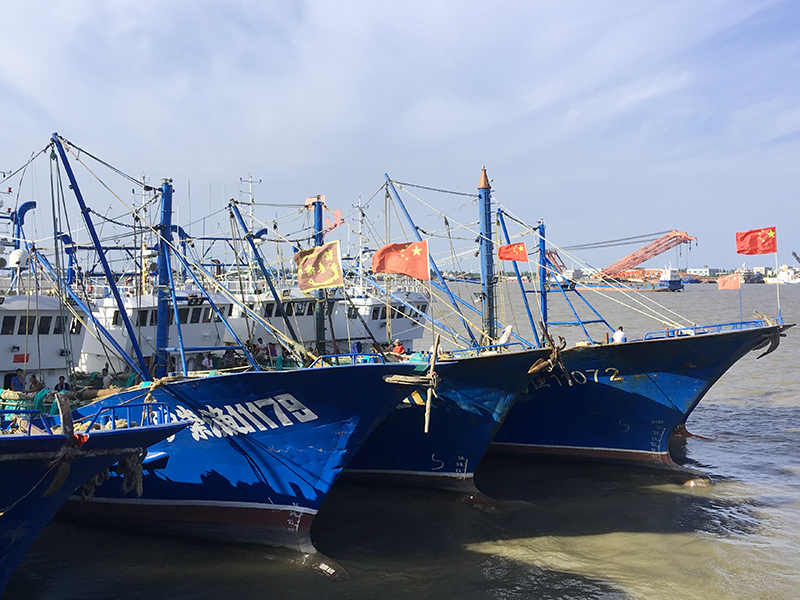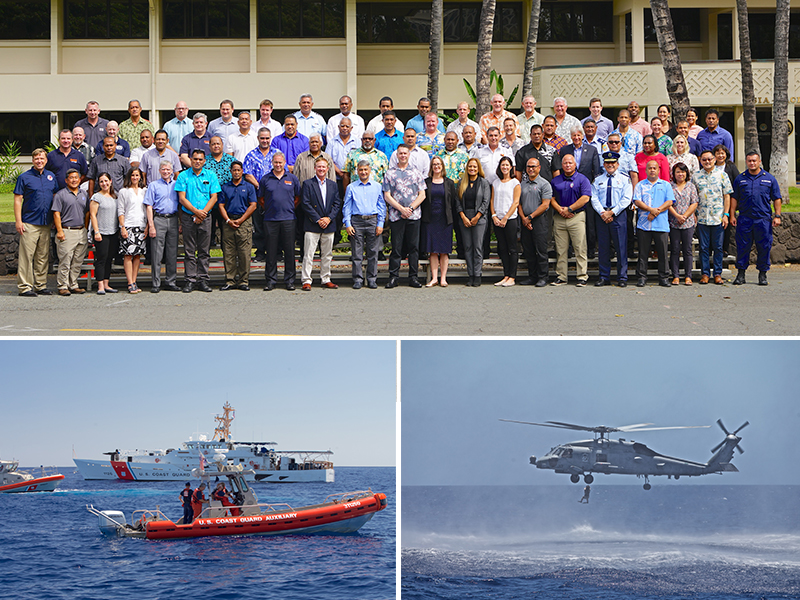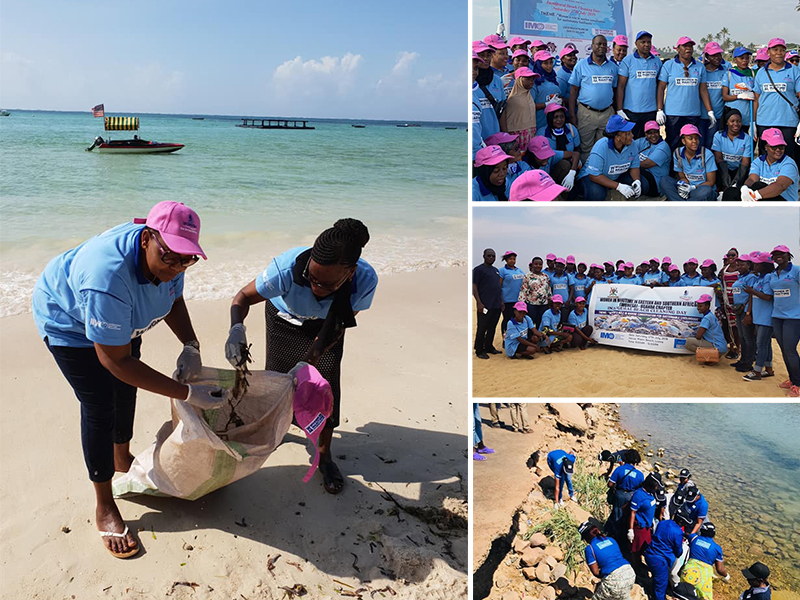Whats New 2019
Brazil readies its biofouling task force
Biodiversity can be threatened by organisms which can build up on ships' hulls and other marine structures, a process known as biofouling. During a workshop in Arraial do Cabo, Brazil (5 August), experts on biofouling and invasive species and others took the first steps towards setting up a national task force to tackle the issue. Brazil is one of 12 lead partnering countries in the GEF-UNDP-IMO GloFouling Partnerships project, which aims to protect marine biodiversity by addressing biofouling. more...
Implementing IMO treaties - the legal bit
IMO treaties need to be implemented into national law so that they can be applied on ships flying the flag of a particular country and so that those countries can implement effective port State control and comply with other obligations under the specified IMO instruments. An IMO course provides lawyers and legislative drafters with the tools they need to understand IMO treaties, how they are developed and adopted - and the implementation of those treaties into national legislation. Participants from Latin America attended a regional workshop on the general principles of drafting maritime legislation to implement IMO Conventions, in Guayaquil, Ecuador (5-9 August). more...
Support to boost maritime security in Kenya
Proper implementation of IMO's maritime security measures is essential for trade. Kenya is the latest country to benefit from training on the implementation of SOLAS Chapter XI-2 and the International Ship and Port Facility Security (ISPS) Code. A national workshop in Mombasa, Kenya (5-9 August) brought together Port facility security officers (PFSOs) as well as representatives of all structures involved in maritime and port security, including Kenya Ports Authority, Kenya Maritime Authority, Customs, Kenya Coast Guard Service, maritime police, and several other port operators. more...
Working with your neighbour on addressing oil spill response
A good working relationship with neighbouring countries is key, especially in the event of a trans-boundary oil spill incident. Namibia and Angola undertook a simultaneous cross-boundary oil spill response training exercise (6-9 August), in Luanda, Angola, and Walvis Bay, Namibia. Both countries' are located in an oil-producing region with heavy maritime traffic, resulting in increased risks of pollution for the vulnerable marine environment. In the event of an oil spill in one country, chances are that it may affect its neighbour as oil spills know no boundary. Regional cooperation is crucial when it comes to oil spill preparedness and response. more...
Updating Cambodia's oil spill preparedness plan
Supporting countries to prepare for contingencies is an important part of IMO's capacity building work. Cambodia is the latest country to benefit from IMO assistance to update its national oil spill contingency plan, by identifying country-specific risks and existing gaps, in order to be able to respond effectively to oil spill incidents, at a national workshop in Phnom Penh, Cambodia (6-9 August). more...
Sharing ship recycling knowledge and best practices
Global application of the regulations in IMO's treaty for safe and environmentally-sound ship recycling - the Hong Kong Convention - will have significant benefits for the environment and for the safety of workers in the sector. China, a major ship recycling country, has been developing its ship recycling facilities to ensure their compliance with the environmental and occupational health and safety requirements of the Hong Kong Convention. China shared its experience and knowledge with representatives of the government and ship recycling industry from Bangladesh, during an IMO Seminar on Ship Recycling and the Hong Kong Convention, held in Zhoushan, China (23-25 July). more...
China fishing vessel safety workshop looks towards treaty ratification
Fisheries-related conventions are key tools used by flag, coastal and port States to effectively monitor and control fishing vessels and minimise the risk of illegal, unreported and unregulated (IUU) fishing activities, by enhancing transparency, traceability and governance. This was the focus of a national workshop in Shanghai, China (29-30 July), organized by the Shanghai Ocean University and the Bureau of Fisheries of the Ministry of Agriculture and Rural Affairs of the People's Republic of China, with input from IMO, the UN Food and Agriculture Organization (FAO), The Pew Charitable Trusts and the IMO Number Scheme manager (IHS Markit). Participants discussed China's potential ratification and implementation of fisheries-related conventions. more...
Pacific workshop enhances preparedness for search and rescue
A mass rescue operations sea and air search and rescue (SAR) exercise in the Pacific Ocean off Hawaii, United States, was just one key element in the 8th Regional Pacific SAR (PacSAR) Workshop (22-26 July). The workshop, organized by IMO in collaboration with the Pacific Community (SPC), aimed to promote ratification of the International Convention on Maritime Search and Rescue, 1979 (SAR Convention) in the region, identify gaps and promote common best practices in SAR services. more...
Cleaning up marine litter
An inaugural female-led beach clean-up exercise in east and southern Africa has helped raise awareness of the problem that marine litter poses to the environment. In Kenya alone, the beach-clean up collected 337 kg of rubbish, generated from land-based activities. The day was led by members from the IMO-supported Association for Women in the Maritime Sector in Eastern and Southern Africa region (WOMESA), together with industry and local communities. more...
